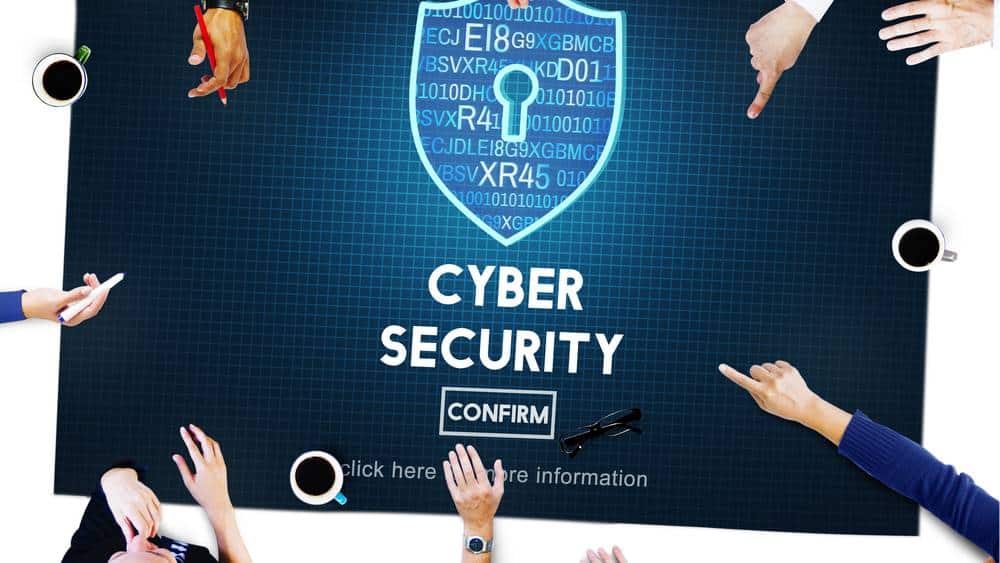Welcome to another insightful piece on Cybersecurity Careers.
This article will examine the various Cybersecurity Career levels and the associated job responsibilities.
At the end of this article, you will understand the requirements for each Cybersecurity Career level and how to choose the right career path.
We will discuss the following topics:
- Cybersecurity Careers – Overview
- Entry-Level Careers
- Mid-Level Careers
- Advanced-Level Careers
- Choosing a Career Path
If you are ready, let’s begin!
Cybersecurity Careers – Overview

The field of Cybersecurity is experiencing a labor shortage due to the growing demand for qualified experts.
Research shows that there are more than three million vacant positions around the globe.
Compared to other types of IT employment, filling Cybersecurity positions takes an average of 20 percent longer.
Additionally, they pay an average of 16 percent more than others.

Working in the field of Cybersecurity provides you with the opportunity to work in a fast-paced environment and one in which you can continue to learn and develop professionally.
If you’re already working in the information technology (IT) field or trying to change your professional life, Cybersecurity is an area you might want to investigate.
In this post, we will take a look at a few of the many different jobs that are accessible to experts in the Cybersecurity industry.
In addition, we will go through the steps necessary to get started in the field of Cybersecurity, as well as the potential career paths available to you.
Entry-Level Careers

The term “entry-level” can be misleading when Cybersecurity applies.
Some “entry-level” jobs may require a Bachelor’s degree and up to three years of experience in the field; candidates with higher levels of education typically need less experience.
If you have a high school diploma or a General Equivalency Diploma (GED), you should probably have up to seven years of work experience on your CV.
The majority of Cybersecurity experts enter the sector after having gained experience in an IT position that is considered to be entry-level.
Within the larger field of Cybersecurity, the following are some of the most popular entry-level occupations available;
Information Security Analyst
Large-scale data breaches have already occurred at major corporations, exposing sensitive information.
These breaches occurred during the first decade of the new century.
Information Security Analysts are responsible for protecting companies and organizations from similar dangers, such as thwarting data breaches and hackers.
An information Security Analyst’s job is to protect a company’s computer networks, systems, and databases against any efforts to hack them and any other data breaches that may occur.
You contribute to the protection of an organization’s computer networks and systems when you work as an Information Security Analyst by doing the following:
- Monitoring networks in search of vulnerabilities in security
- conducting investigations, keeping detailed records, and filing reports on security lapses
- Researching emerging trends in IT security
- Assisting users of computers concerning security operations
- Developing measures to assist them in maintaining the safety of their company
Information Security Specialist
An organization’s computer system and network can only be as secure as its information security, and an Information Security Specialist is responsible for various duties critical to that security.
Your responsibilities will include:
- Identifying potential security flaws in an organization’s systems by utilizing both your expertise and specialized software
- Establishing security standards
- Educating management on the most effective technology and security practices
- Upgrading information security software
- Assisting with security breaches
To test an organization’s security system, analyze its flaws, and develop a security plan, you may also employ hacking techniques or other methods to simulate security breaches.
It is common practice for Information Security professionals to begin their careers in an entry-level role working under the direction of an experienced Security Engineer.
Cyber Crime Analyst
Cyber Crime Analysts look into a wide variety of crimes, including the recovery of file systems from machines that have been compromised or otherwise damaged.
They extract computer data that can be used as evidence in legal proceedings to prosecute criminals.
In addition to their work as computer crime detectives, they also testify in court and make reports for the court.

Huge organizations could employ them to evaluate the effectiveness of the security solutions already in place.
To accomplish this, investigators test various methods for breaking into corporate computer networks.
Additionally, organizations strive to achieve the highest possible levels of optimal computer system performance.
Incident and Intrusion Analyst
Incident and Intrusion Detection Specialists are responsible for monitoring, detecting, and reporting any threats directed against a corporation’s networks and systems.
They are also known as Incident Responders or Analysts.
These Analysts are expected to act as cyber defense warriors for an organization by preventing attacks from happening and by quickly determining the root cause of any threats or incidents that may tamper with information or infrastructure.
They work with various procedures and forensic tools, including security audits, penetration testing, event analysis, and in-depth computer surveillance and monitoring of inbound and outbound internet traffic.
Some of the tasks an Incident Response Analyst is responsible for include:
- Performing meticulous computer monitoring and surveillance
- Executing scans for malicious software and checking for security holes
- Finding security flaws in systems and networks and reporting them to the appropriate authorities
- Carrying out research and risk assessments, as well as security inspections
- Determining and scrutinizing computer and network intrusions
- Offering both technical help and support for responding to security incidents
- Researching new potential sources of danger
- Putting together defense mechanisms and plans
Cybersecurity Auditor
Many of the world’s most successful corporations have begun contracting Independent Cybersecurity audits to be carried out by a third party.
These audits place a significant emphasis on thoroughly comprehending, managing, and minimizing any potential security risks.
Some companies additionally include components of the Cybersecurity auditing function into positions performed internally.
Like many other roles within the expansive and rapidly expanding Cybersecurity field, the Cybersecurity Auditor’s tasks can vary widely based on the business and the organization’s particular requirements.
Cybersecurity Auditors collaborate with businesses and other organizations to deliver exhaustive reviews of internet security systems.
These reviews often cover the following areas:
- A comprehensive overview of the various security mechanisms that are currently in use
- Analysis to determine whether or not the systems operate successfully or efficiently
- Recommendations for modifications to the protocols and infrastructure already in use
Digital Forensics Examiner
If you take pleasure in searching for hints to solve a mystery, this position may be right for you.
Investigators specializing in computer forensics can retrieve data from computers and other digital devices to expose unauthorized system access or compile evidence for use in a court proceeding.
Daily activities of Digital Forensics Examiners may include:
- Obtaining, storing, and conducting an investigation of digital evidence
- Recovering data from erased or damaged hard disks
- Maintaining the chain of custody while also producing documentation of the data retrieval procedure
- Assisting law enforcement agencies in connection with criminal investigations
- Providing statements based on one’s expertise during legal proceedings
Mid-Level Careers

As you gain expertise in Cybersecurity, several doors may open for you to develop into roles requiring a higher level of specialization.
Cybersecurity Consultant
A client will employ a Cybersecurity Consultant to test the firm’s current Cybersecurity measures, after which the Security Consultant will create and implement a better defense for the organization.

The consultant will not work exclusively for one company.
They determine the most effective means of protecting computers, networks, software, data, and entire information systems against potential intrusions or cyberattacks.
They do vulnerability testing much in the same way as a white hat hacker would, which includes risk assessments and safety inspections.
Cybersecurity Analyst
A Cybersecurity Analyst’s primary responsibilities include developing, evaluating, and implementing various security measures within a business to prevent data breaches.
They keep an eye on the networks and servers to ensure that the assets are protected, and they work diligently to safeguard the data as quickly as possible in the event of an assault.
The major responsibility of the Analyst is to have a thorough understanding of the organization’s IT infrastructure, monitor that infrastructure constantly, and evaluate any vulnerabilities that may pose a network risk.
Cybersecurity Analysts constantly look for novel approaches to strengthen the organization’s network defenses and protect its most sensitive data.
Some of the roles of a Cybersecurity Analyst include:
- To maintain a consistent security schedule for the network
- Keeping an eye out for any intrusions or unauthorized access to figure out what caused the security breach
- Ensuring that appropriate safety precautions have been taken with all of the software
- Testing for security flaws and risk assessments to examine and evaluate the present level of security
- Carry out audits and evaluations of the security both internally and outside
- Conduct an audit to determine whether or not the organization complies with the applicable regulatory requirements and industry standards
- Updating the organization’s recovery from disasters
- Ensuring that there are backups available for the organization in the case of a cyber attack
- Creating and applying the most effective best practices for Cybersecurity
- Discussing the flaws in the system as well as potential fixes with management and the IT personnel
- Reporting on the reasons for security breaches and making recommendations
- Assisting other staff with their training in Cybersecurity
Penetration/Vulnerability Tester
Penetration Testers, sometimes known as Pen Testers, or Ethical Hackers, are responsible for simulating various cyberattacks on a firm’s computer systems and networks.
These allowed tests assist in locating security flaws and vulnerabilities so that they can be addressed before malevolent hackers can exploit them.
As a Penetration Tester, your job will be to take a proactive and offensive role in Cybersecurity by carrying out assaults on the digital systems already in place at an organization.
When conducting these tests, hackers may use various hacking tools and methods to look for vulnerabilities in the system that they can exploit.
Cryptography Engineer
Working in cryptography entails protecting data for communication and the transmission of information.
Encrypting data requires the creation of encryption algorithms, ciphers, and other security protocols, which Cryptologists are responsible for developing.
Deciphering information that has been encrypted is the job of CryptAnalysts.
Typical responsibilities for this position include:
- Creating fresh cryptographic formulas
- Examining the weaknesses of the current algorithms
- Putting encryption solutions in place
- Testing new tools and encryption methods
Advanced-Level Careers

As you gain expertise in Cybersecurity, you might decide to move up the ranks of your firm and take on a leadership role.
Cybersecurity Manager
Security Managers are responsible for monitoring and ensuring the integrity of an organization’s computer networks and information security systems.
You are in charge of supervising the security infrastructure at your organization as part of your role as a Cybersecurity leadership position there.

The Chief Information Security Officer is almost always considered the most responsible and senior-level security position in an organization.
When working in security at the executive level, one of the most common responsibilities is to manage the operations, policies, and budgets of the company’s security infrastructure.
Your work responsibilities may include:
- The management of both technological and human resources
- Tracking changes to internal and external security policies
- Ensuring that all of the safety laws and regulations are followed
- Identifying and acquiring appropriate Cybersecurity tools for the enterprise
- Leading risk mitigation efforts
Cybersecurity Engineer
This engineering discipline entails developing and administering hardware, software, and security policies to defend computer systems, networks, and data.
Understanding cyberspace requires electrical engineering and computer science, which is what Cyber Engineers specialize in.
To carry out duties related to Cybersecurity, such as building hardware and software, they use the knowledge and abilities they have gained in digital forensics, security policy, and network defense.
Cybersecurity consists of a software or data component and may or may not include a hardware or device component.
Probability, statistics, and cryptography, as well as specialized math and engineering issues, are utilized by Cyber Engineers.
They analyze complicated devices and develop them, likely to have human, software, and hardware components.
Some of the common daily tasks performed by Cybersecurity Engineers include:
- Taking action in response to any breaches in a network or system security or viruses
- Ensuring that the right security controls are always in place to secure the digital files and infrastructure of the company
- Developing, putting into action, managing, monitoring, and improving the security measures that are in place to protect systems, networks, and data
- Several different administrative responsibilities, along with report writing and coordination with other departments
- Carrying out penetration tests and locating system and network flaws
Cybersecurity Architect
The position of Cybersecurity Architect is held by a senior-level professional responsible for the organization’s computer and network security architecture’s planning, development, testing, implementation, and maintenance.
A Cybersecurity Architect must be familiar with the employer’s line of work, with an in-depth comprehension of the company’s technology in its daily operations.
This position, also referred to as a Security Architect, and an Information Security Architect is one of the most sought-after roles for seasoned IT experts.
Because there is a skills gap in the Cybersecurity business, there is a strong need for Cybersecurity Architects.
As a result, organizations offer extremely competitive wages to individuals with the necessary qualifications to prosper in this crucial profession.

The basic tasks of a Cybersecurity Architect often include the following:
- Gain a thorough understanding of the technology and information systems used by the organization
- Creating, implementing, and maintaining enterprise-class security systems
- Align the infrastructure and organizational security plan with the broader business and technology strategy
- Determine and convey current and new security threats
- Create security architecture components to counteract threats as they materialize
- Organize, study, and create reliable security architectures for each IT project
- Perform or oversee security assessments, risk analyses, and vulnerability testing
- Develop solutions that balance business, information, and Cybersecurity needs
- Find security design flaws in current and proposed architectures and suggest improvements or adjustments.
- Examine and give the go-ahead for installing servers, routers, firewalls, and VPNs
- To guarantee that security systems function as expected, test them.
- Modern programming languages and tools are utilized to write code, finish programming, and conduct application testing and debugging
- Provide oversight and direction to a security team
- Establish, carry out, and uphold business security guidelines
- instruct consumers on how to utilize or convert systems
- React to security-related problems and offer in-depth analysis and remedial actions
- Inform upper management regularly of critical information, security requirements, and priorities
Cybersecurity Career Progression

Candidates for entry-level positions in Cybersecurity are required to have fundamental educational qualifications such as a Bachelor’s degree or certification.
Candidates could begin their careers in the information technology industry by working as entry-level Help Desk Technicians, Software Developers, or Network Administrators.
Still, employers may not necessarily need them to have previous work experience.
In this role, you are often responsible for monitoring systems, identifying anomalies, reporting potential dangers to higher-ups, etc.
Mid-level Analysts, Testers, and Engineers typically take on a more strategic position after gaining a few years of experience and a few advanced certifications in their respective fields.
You will be responsible for designing security systems and examining, assessing, and auditing such systems for flaws utilizing methods such as ethical hacking.
In addition, you will address and resolve the threats that entry-level Cybersecurity Analysts have escalated.
Leadership responsibilities are under the purview of senior-level posts such as Chief Information Security Officer (CISO) and Chief Information Officer (CIO).
You will be responsible for developing security roadmaps, managing security teams, engaging vendors, and reviewing and negotiating contracts.
Choosing a Career Path

Numerous Cybersecurity positions call for a degree in computer engineering, mathematics, computer science, or a related discipline.
Earning a degree in Cybersecurity is just the beginning of your career and not the only method to get started.
For instance, if you have strong security skills, many employers won’t require you to have a degree in Cybersecurity to apply for a position.
The truth is that there is no rigid path to a career in Cybersecurity.
Additionally, you can pursue other jobs in addition to Cybersecurity work with a technological company.
Knowing what other chances are available for employees interested in Cybersecurity jobs at technology organizations is crucial because the business is managed by more than simply the IT department.

Various career paths in this field let students choose their path regardless of what they do online.
There are many organizations where they can find Cybersecurity specialists.
Given that the area is evolving and there are various job opportunities, aspiring Cybersecurity specialists should conduct thorough research before choosing a viable career route.
As the industry grows and various career options become available, aspiring Cybersecurity experts should do their homework to determine the ideal combination of knowledge and experience for each possible career path.
Conclusion

One of the most fascinating and difficult careers available today is in the field of Cybersecurity.
Those individuals with the correct level of curiosity, skills, and work ethic can find significant success in today’s job market.
The next generation of Cybersecurity experts will play an essential role in enhancing our collective safety as security threats increase in complexity, volume, and severity.
The experts working in Cybersecurity come from a wide range of different backgrounds, much like the industry itself.
Learning networking can assist you in gaining an understanding of the technical components of data transmission, which will enable you to protect your data better.
Obtaining certifications in networking, such as CompTIA Security+ and Cisco CCNA, is a fantastic place to begin.
FAQs

What type of companies employ Cybersecurity experts?
Besides government jobs, those with expertise in Cybersecurity may seek employment at technology companies like Intel and software companies like Microsoft and Cisco.They may work in banks like JPMorgan Chase, health providers like Mayo Clinic Hospital, and manufacturing companies like Ford, Valero Energy, and General Motors.
Does a Cybersecurity Job require programming?
Even though you may work in Cybersecurity without having any prior experience with programming, having such knowledge is regarded as a significant skill set, particularly if you want to further your career.
Research indicates that knowing Python is one of the necessary skills for a career in the Cybersecurity industry.
Can Cybersecurity experts work remotely?
Cybersecurity doesn’t have to be done in an office setting is one of the many advantages it offers. If you enjoy face-to-face meetings with employers and coworkers, plenty of on-site employment is accessible. However, if your availability is more constrained, plenty of telecommuting alternatives are available in Cybersecurity.
Can I get rich in a Cybersecurity career?
Pentesters can make up to $103,000 annually, compared to the average salary of $95,000 typical for Cybersecurity experts.
Planning your path through a career in Cybersecurity can assist you in ensuring that you will be able to meet all your financial objectives well into the future.
Is it hard to get a Cybersecurity Job?
Cybersecurity jobs are not difficult to come by.
Over the next decade, more than 30% of possibilities will be available, according to the Bureau of Labor Statistics.
Because most technical abilities are learned on the job, recruiters frequently emphasize soft skills for entry-level candidates.









